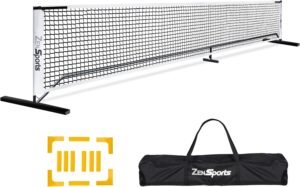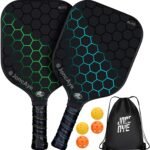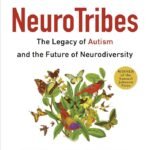Effective Communication Techniques for Neurodiverse Athletes
Discover how to enhance athletic training and performance by mastering communication techniques tailored for neurodiverse athletes. Learn key strategies for engaging athletes with diverse neurological conditions.
Understanding and implementing effective communication techniques is crucial for coaching neurodiverse athletes. This blog post explores practical methods to foster better engagement and performance among athletes with diverse neurological conditions.
– Coach Johnny
Introduction
Hello, passionate coaches and sports lovers!
Have you ever considered how fine-tuning your communication approach could benefit your neurodiverse athletes?
Whether leading a local sports team or grooming top-tier athletes for the big leagues, mastering the art of communicating effectively with each individual is essential.
This is particularly crucial for those experiencing neurological differences, as it fosters their growth on many levels.
In today’s post, I will delve into some powerful communication strategies specifically designed for athletes with various neurological conditions.
Why might the standard coaching playbook fail these athletes?
How can targeted, thoughtful communication techniques fill these gaps, boosting performance and personal growth?
As we embark on this journey, remember that each step we take together enriches our understanding and enhances our coaching toolkit.
Are you ready to refine your strategies and elevate your coaching game?
Let’s dive in and discover how to make every interaction with your athletes as impactful as possible.
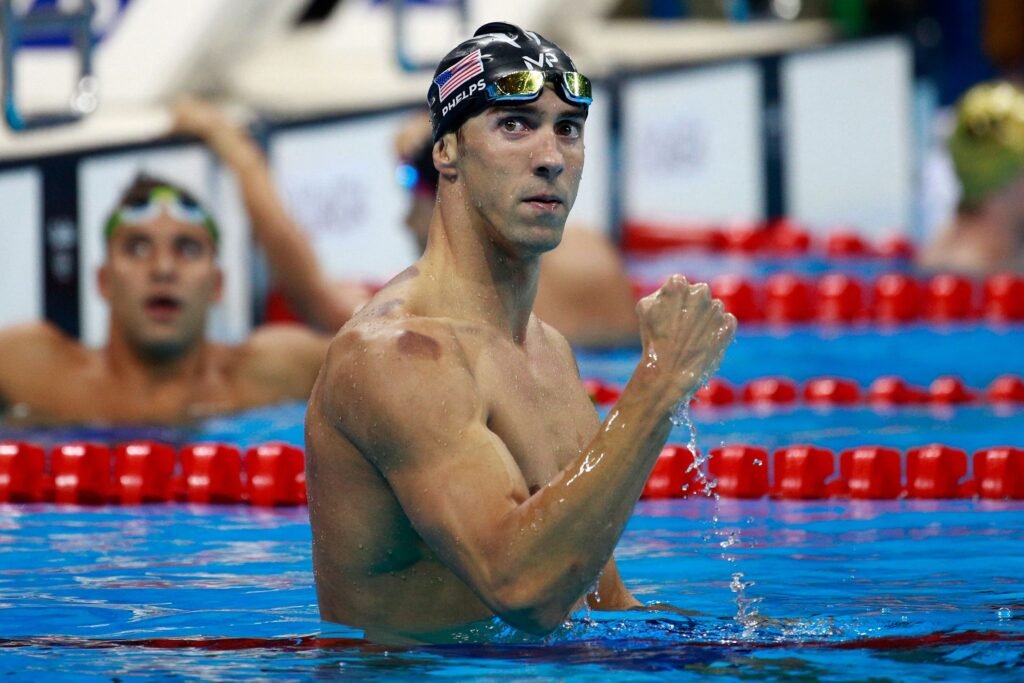
“The only reason I started swimming was because I had a teacher tell me I would never be able to be successful at anything. I was diagnosed with ADHD. I had to find something that I could really focus on so I wouldn’t get into trouble. And that was the pool.”
– Michael Phelps’s quote underscores how finding the right sport can help neurodiverse athletes, like those with ADHD, channel their energy and excel.
Understanding Neurodiversity
Understanding neurodiversity involves recognizing and appreciating differences in individual brain function and behavioral traits as part of the normal variation in the human population.
This concept broadens our perspective, encouraging the inclusion and support of people with various neurological conditions.
Such conditions include Autism Spectrum Disorder (ASD), Attention Deficit Hyperactivity Disorder (ADHD), and Dyslexia, among others.
These conditions influence how individuals perceive, interact with, and navigate the world.
In sports settings, neurodiversity can significantly affect how athletes communicate and learn.
For instance, an athlete with ASD might struggle with understanding nonverbal cues or might feel overwhelmed by noisy, chaotic environments.
Similarly, an athlete with ADHD may face difficulty maintaining focus during extended strategic discussions or drills.
On the other hand, someone with Dyslexia might find it difficult to process written plays or graphical strategies quickly.
These differences necessitate tailored communication strategies that cater to individual needs, fostering a supportive environment that enhances learning and performance.
Coaches who understand and adapt to the neurodiverse nature of their athletes can improve engagement and effectiveness, ultimately helping each athlete reach their full potential.
Understanding and supporting neurodiversity thus becomes not just an ethical imperative but a strategic advantage in sports coaching.
Challenges of Traditional Coaching Methods
Traditional coaching methods often center around standardized approaches that may not align well with the needs of neurodiverse athletes.
For example, a common strategy is group instructions delivered verbally in a fast-paced and noisy environment.
This method can be particularly challenging for athletes with auditory processing issues or those easily overwhelmed by sensory overload.
Another typical approach is the reliance on written materials and visual cues.
These may disadvantage those with Dyslexia or other learning differences that affect their ability to process textual information quickly.
The impact of these traditional methods on neurodiverse athletes can be significant, affecting their performance and engagement.
Athletes who struggle to keep up with conventional coaching techniques may experience decreased self-esteem and motivation.
They might also feel isolated or misunderstood, which can lead to a decrease in participation.
This misalignment between coaching methods and athletes’ needs can result in less effective skill development and poorer overall performance.
Recognizing and adjusting these traditional coaching strategies to accommodate neurodiverse athletes enhances inclusivity and optimizes training outcomes.
By tailoring approaches to meet diverse needs, coaches can foster a more supportive and productive environment for all athletes.
“Neurodiversity is an asset in sports. It brings different perspectives and approaches to the game, enriching the team and fostering a more inclusive environment.”
– Jean Driscoll’s insight points to the value neurodiverse athletes bring to teams through their unique perspectives and approaches.
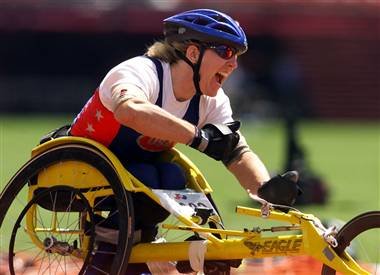
Core Communication Techniques for Neurodiverse Athletes
Effective communication is essential when coaching neurodiverse athletes, requiring methods that respect and adapt to the varied ways individuals perceive and process information.
Here are core techniques that can enhance clarity, understanding, and inclusivity:
Clear and Structured Communication
Clarity and consistency in communication are paramount.
Neurodiverse athletes often benefit from predictable and straightforward interactions, reducing confusion and building trust.
Coaches can simplify instructions and feedback by using concise, direct language and breaking down complex tasks into manageable steps.
It’s also beneficial to repeat key points to ensure comprehension and provide consistent feedback that reinforces learning without overwhelming the athlete.
Visual Aids and Supports
Visual aids such as diagrams, images, and physical demonstrations can significantly enhance the learning experience for athletes with neurodiversity.
These tools help clarify verbal instructions and provide a reference that athletes can consult independently.
Demonstrating techniques through action rather than describing them helps bridge the gap between instruction and execution.
Additionally, maintaining a visual record of schedules, positions, or strategies can help athletes visualize their roles and the sequence of actions required, improving understanding and retention.
Individualized Communication Plans
Each athlete’s neurological makeup influences how they best receive and process information, making personalized communication plans critical.
Coaches should assess each athlete’s preferences, such as whether they benefit from verbal cues, written instructions, or hands-on demonstrations.
Regular check-ins can help adjust these strategies as the athlete grows and their needs change.
This tailored approach not only aids in skill development but also shows the athletes that their individual needs are acknowledged and valued.
Creating an Inclusive Environment
Inclusivity and empathy within a team setting are crucial for building a supportive community that enhances every athlete’s experience and performance.
Coaches should lead by example, fostering an atmosphere where differences are respected and valued.
Encouraging athletes to support one another and share their success strategies can also cultivate a more inclusive environment.
Training sessions with cooperative learning activities can promote understanding and empathy among teammates, making the sports setting a shared, supportive space.
Implementing these core communication techniques creates an environment that accommodates and celebrates neurodiversity. Such an approach improves performance and engagement for neurodiverse athletes and enriches the team’s dynamics, leading to a more cohesive and adaptive sports environment.
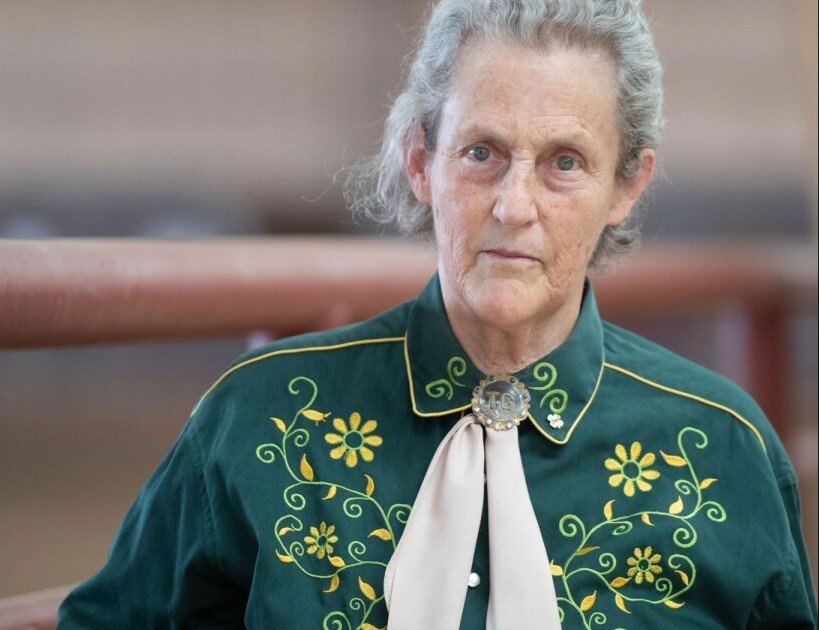
“Sports can offer neurodiverse individuals a structured, supportive environment where they can develop social skills and confidence. It’s about finding the right fit and understanding their unique needs.”
– Dr. Grandin emphasizes how sports can be particularly beneficial for neurodiverse athletes by providing structure and opportunities for social development.
Practical Tips for Coaches
For coaches looking to support neurodiverse athletes effectively, integrating certain practices into daily routines is essential.
Here are practical tips and strategies for coaches and their teams:
Daily Routine Integration
Start each session with concise summaries of the day’s objectives and schedules, using verbal and visual formats.
This helps neurodiverse athletes prepare mentally and physically for what to expect.
Consistently use simple, direct language and maintain a routine that includes regular breaks, which can help reduce sensory overload and mental fatigue.
Effective Use of Visuals
Incorporate visual schedules and checklists that outline practice routines and expectations.
This aids athletes who may struggle with verbal instructions or need reminders of the steps involved in complex activities.
Structured Feedback
Provide feedback in a structured, consistent manner.
Use positive reinforcement to highlight an athlete’s strengths, followed by straightforward guidance on areas for improvement.
This approach can boost confidence and clarity for all athletes, particularly those who may find nuanced critiques challenging to understand.
Training Staff and Athletes
Educate your coaching staff and athletes on the basics of neurodiversity.
Hold workshops demonstrating how to use clear communication and why it’s important.
Encourage team members to adopt these practices in their interactions, fostering an inclusive and supportive environment.
Role-playing scenarios can be an effective way to practice and understand how to adapt communication styles.
Embedding these practices into daily routines creates a supportive framework that enhances the performance and well-being of all athletes, fostering an environment where everyone is equipped to succeed.
“As someone who has faced mental health challenges, I understand the importance of support systems in sports. Neurodiverse athletes need coaches and teammates who are educated about their needs and strengths.”
– Rick Ankiel’s experience with mental health challenges translates to a deeper understanding of the support needed for neurodiverse athletes to thrive.
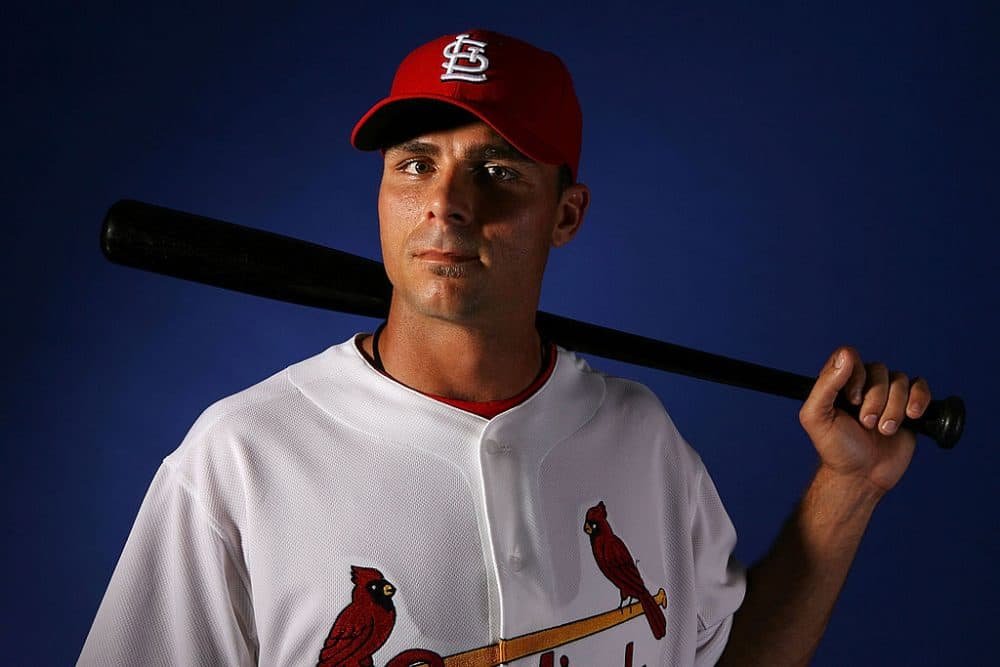
Implementing the Strategies
Implementing strategies to develop grit and resilience among young athletes demands consistency and patience.
Coaches and parents play pivotal roles in this process, necessitating a regular review of their approaches to ensure they effectively foster these qualities.
It’s not merely about applying a one-size-fits-all method but rather tailoring the strategies to meet each athlete’s unique needs and responses.
Each young person brings their own experiences and attitudes to the table, which means that how they react to challenges and absorb feedback can vastly differ.
It’s essential that the methods used are adaptable and considerate of individual differences to truly embed these values.
This customization makes the learning process more relevant and impactful for each athlete, enhancing their ability to integrate these lessons into their daily practices and competitions.
By thoughtfully adjusting approaches, coaches and parents can more effectively guide young athletes towards encouraging grit and resilience and persisting through adversity.
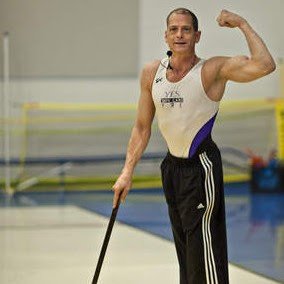
“Success in sports is about adaptation and determination. Neurodiverse athletes often excel in these areas because they’ve had to adapt and persevere in other aspects of their lives.”
– Lloyd Bachrach notes that the adaptive skills and determination developed by neurodiverse individuals can lead to significant success in sports.
Conclusion
For coaches striving to support neurodiverse athletes, embedding specific practices into daily coaching routines can significantly enhance the training environment.
Here are practical tips and strategies:
Consistency and Clarity: Begin each session with a concise overview of the day’s activities.
Use both verbal explanations and visual aids, such as diagrams or schedules.
This dual approach helps neurodiverse athletes prepare and understand what to expect, reducing anxiety and confusion.
Simple Communication: Always use simple, direct language.
Avoid idioms or complex jargon, which can be confusing.
Break instructions into small, manageable steps and repeat key points to ensure understanding.
Positive, Structured Feedback: Offer feedback in a consistent format.
Start with positive reinforcement, then provide specific, constructive advice.
This method helps build confidence and clarifies instructions for athletes struggling with ambiguous guidance.
Educate and Train Team Members: Train your staff and athletes on the importance of inclusive communication.
Conduct workshops that cover the fundamentals of neurodiversity and effective communication techniques.
Practicing through role-playing can help team members better understand and adapt their interactions with neurodiverse peers.
Incorporating these approaches not only supports neurodiverse athletes but also cultivates a team culture of respect and empathy, enriching the experience for all participants.
Call to Action
Join Coach Johnny in cultivating the next generation of youth sports athletes.
Now that you have these practical strategies for supporting neurodiverse athletes, I encourage you to implement them in your coaching practices.
Start by integrating clear, consistent communication methods and fostering an inclusive environment in your daily routines.
Observe the positive changes in team dynamics and athlete performance as you apply these techniques.
Consider exploring additional resources to deepen your understanding and enhance your skills further.
Books such as Victoria Honeybourne’s “The Neurodiverse Workplace” and Steve Silberman’s “NeuroTribes” offer comprehensive insights into neurodiversity.
Additionally, attending workshops or training sessions on neurodiversity in sports can provide hands-on experience and expert advice tailored to athletic environments.
Implementing these changes will not only make you a better coach but also make your sports program a beacon of inclusivity and understanding.
Embrace this opportunity to lead by example and create a nurturing space that celebrates diversity in all its forms. Let’s make sports a welcoming place for every athlete!
Join the JK Tribe
Coach Johnny is a youth sports coach with over 30 years of experience. He continues to coach various sports in various age groups (pre-high school) for all genders. He is also the founder of Johnny’s Kidz and the JK Tribe. If you would like to support his journey and become a Tribe member, reach out and Buy Coach A Cup of Coffee.
And remember, The Game Belongs to Them!
